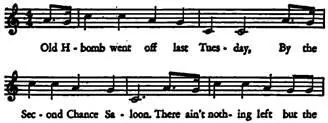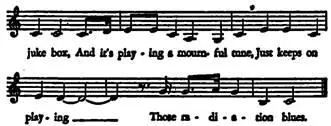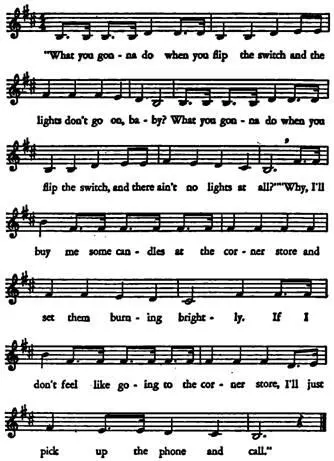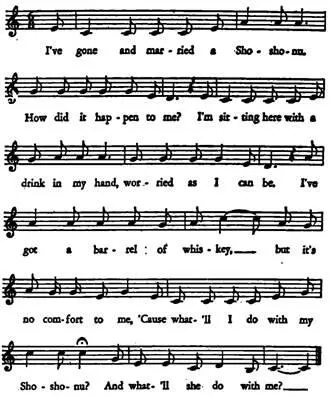Judith Merril - The Year's Greatest Science Fiction & Fantasy 6
Здесь есть возможность читать онлайн «Judith Merril - The Year's Greatest Science Fiction & Fantasy 6» весь текст электронной книги совершенно бесплатно (целиком полную версию без сокращений). В некоторых случаях можно слушать аудио, скачать через торрент в формате fb2 и присутствует краткое содержание. Год выпуска: 1962, Издательство: Dell, Жанр: Фантастика и фэнтези, на английском языке. Описание произведения, (предисловие) а так же отзывы посетителей доступны на портале библиотеки ЛибКат.
- Название:The Year's Greatest Science Fiction & Fantasy 6
- Автор:
- Издательство:Dell
- Жанр:
- Год:1962
- ISBN:нет данных
- Рейтинг книги:3 / 5. Голосов: 1
-
Избранное:Добавить в избранное
- Отзывы:
-
Ваша оценка:
- 60
- 1
- 2
- 3
- 4
- 5
The Year's Greatest Science Fiction & Fantasy 6: краткое содержание, описание и аннотация
Предлагаем к чтению аннотацию, описание, краткое содержание или предисловие (зависит от того, что написал сам автор книги «The Year's Greatest Science Fiction & Fantasy 6»). Если вы не нашли необходимую информацию о книге — напишите в комментариях, мы постараемся отыскать её.
The Year's Greatest Science Fiction & Fantasy 6 — читать онлайн бесплатно полную книгу (весь текст) целиком
Ниже представлен текст книги, разбитый по страницам. Система сохранения места последней прочитанной страницы, позволяет с удобством читать онлайн бесплатно книгу «The Year's Greatest Science Fiction & Fantasy 6», без необходимости каждый раз заново искать на чём Вы остановились. Поставьте закладку, и сможете в любой момент перейти на страницу, на которой закончили чтение.
Интервал:
Закладка:
Locking herself into thought disciplines, Dandi began to dissolve. Man had needed machines to help him to do it, to fit into the Involutes. She was a lesser animal: she could unbutton herself into the humbler shape of a musicolumn. It was just a matter of rearranging— and without pain she formed into a pattern that was not a shaggy megatherium body ... but an indigo column, hardly visible. . . .
Lass for a long while cropped thistle and cacti. Then she ambled forward to seek the hairy creature she fondly—and a little condescendingly—regarded as her equal. But of the sloth there was no sign.
Almost the only landmark was a faint violet-blue dye in the air. As the baluchitherium mare approached, a sweet old music grew in volume from the dye. It was a music almost as old as the landscape itself and certainly as much travelled, a tune once known to men as The Old Hundredth. And there were voices singing: ‘All creatures that on Earth do dwell. . . .’
BLUES AND BALLAD
by Theodore R. Cogswell and Gordon R. Dickson
Whether or not s-f did (before Punch-parodies) lack humor, it is certainly true that its best boffs have seldom seen print. (Or I should have said, type,) Fan magazines are usually mimeographed, and only the official programs of the annual fan conventions are ordinarily transcribed.
These Labor Day weekends are virtually Impossible to describe (without, at least, technicolor). But for spontaneous humor, song, skit, verse, quick-trigger emceeing, and sufficiency of the bon (mot or vivant), they would be hard to equal. In their songs, particularly—whether at national, international, or purely neighborly gatherings—s-f-ers in general antedated the recent return to roll-your-own, home-made music. Oddly, the music-story did not appear until recently, but s-f music (both in parody and in original) has been on-scene (behind the scenes) for years.
Herewith, a distinctive part of the tradition of the special world inside Science Fiction....
Words by Theodore R. Cogswell—Music: “John Henry” variation


I’ve been drinking since last Wednesday
And I should be getting high,
But the dehydration’s got me
And all I am is dry.
Can’t get no edge on—got radiation blues.
When the sun went down last evening,
I went walking in the park.
Didn’t mind those busted street lights,
I was glowing in the dark,
Just call me glow-worm—got radiation blues.
Had a wake for Jake the barber,
One long drink and one short prayer.
Went and shot himself this morning,
‘Cause the whole town lost it’s hair.
Came out in handfuls—’got radiation blues.
Ain’t no use in going no place,
Whole damn world is just like here.
Boss men really fixed us this time,
Think I’ll have another beer.
Ain’t no use singing those radiation blues.
Words and music by Theodore R. Cogswell

II
“What you gonna do when the gas go off,
And the cook stove don’t work, baby?
What you gonna do when the gas go off,
When there ain’t no gas no more?”
“Why I’ll send me a letter by the postal man,
For my love to take me dining.
Never cared ‘bout cooking for myself nohow,
I’ll just lock that kitchen door.”
III
“What you gonna do when the water go off?
What you gonna drink then, baby?
What you gonna do when tie water go off,
And you start a-getting dry?”
“Why I got me a bottle of champagne wine
My true love gave me Sunday.
And when that bottle am all drunk up—
Just set me down and cry.”
IV
“What you gonna do when the rockets come,
And the whole town blow up, baby?
What you gonna do when the rockets come,
And that trumpet start to blow?”
“Why I’ll put on my party dress,
And watch the sky a-falling,
‘Cause the Lord’s a-waiting for to raise me up,
When it comes my time to go.”
by Gordon R. Dickson—Music by Gordon R. Dickson

I got paid off on Lyra one. I left that deep space boat.
I went downtown to the barrooms there, just to wet my throat.
The Shoshonu were all around, and one sat down with me.
Oh, what’ll I do with my Shoshonu?
And what’ll she do with me?
She hadn’t moulted her humanoid form; she was pretty as could be.
She turned her big eyes up to mine, and smiled soulfully.
But she slipped a mickey in my drink, when she got home with me.
Oh, what’ll I do with my Shoshonu?
And what’ll she do with me?
When I woke up the wedding was on, and I was saying, “Yes—”
The High Shoshonu’s six-foot fangs two inches from my vest.
The relatives were all around, they swarmed all over me.
Oh, what’ll I do with my Shoshonu?
And what’ll she do with me?
Her father gave us a ton of gold; her mother gave us jewels.
The rest of the tribe pitched in on a house, complete with swimming pools.
They said, “Take care of our little girl—she’s about to moult, you see.”
Oh, what’ll I do with my Shoshonu?
And what’ll she do with me?
So I’m sitting here with a drink in my hand, as worried as I can be.
When a Shoshonu moults, she turns into a dragon, rough-el-ly.
It’s our wedding night. She’s moulting now. And it makes them hung-ger-ry.
Oh, what’ll I do with my Shoshonu?
And what’ll—she—do—with—me?
HOW TO THINK A SCIENCE FICTION STORY
by G. Harry Stine
In August, 1957, I doubt there were a hundred men and women alive who rationally expected to see a man land on the Moon in their own lifetimes. There were, I should say, a couple of thousand, out of Earth’s billions, who honestly believed such a development to be technologically possible, or historically plausible. By January of 1958, the swiftest intellectual revolution in history had occurred. But even then, our best hopes were slower than our best performance.
Dr. I. M. Levitt, director of the famous Fels Planetarium, was one of the few men already accustomed to thinking in terms of the challenge of space. Shortly after Sputnik, in an article in The New York Times, he predicted a manned rocket into space by 1968; a station in space by 1980; and a manned trip to the Moon about the year 2000.
Look magazine, in a “Space Timetable” at the start of 1958, did not anticipate the first manned satellite till between 1970 and 1980 (on the basis of pooled scientific opinions); but lowered Dr. Levitt’s estimate for the Moon trip, placing it “in the last decade of this century.”
G. Harry Stine, a rocket engineer who had been working at While Sands until S (for Sputnik)-Day, when he voiced his opinion of the U.S. space program (“Fat, dumb, and happy,” was part of it), was rather more optimistic. He said 1967 for a man in orbit, 1970 for a manned space station.
Two years later—January, 1960—Look magazine printed a new timetable, agreeing with Stine’s old guess on the space station, but making him look like a stodgy conservative otherwise: men in orbit by the end of 1961, they said, and the first man to the Moon between 1967 and 1969. But they also said 1963 for the Echo satellite which was launched eight months after the article appeared; and they figured the Soviet Venus probe (January, 1961) for early 1962. Once again these estimates were derived from a composite of best-informed sources.
Читать дальшеИнтервал:
Закладка:
Похожие книги на «The Year's Greatest Science Fiction & Fantasy 6»
Представляем Вашему вниманию похожие книги на «The Year's Greatest Science Fiction & Fantasy 6» списком для выбора. Мы отобрали схожую по названию и смыслу литературу в надежде предоставить читателям больше вариантов отыскать новые, интересные, ещё непрочитанные произведения.
Обсуждение, отзывы о книге «The Year's Greatest Science Fiction & Fantasy 6» и просто собственные мнения читателей. Оставьте ваши комментарии, напишите, что Вы думаете о произведении, его смысле или главных героях. Укажите что конкретно понравилось, а что нет, и почему Вы так считаете.












